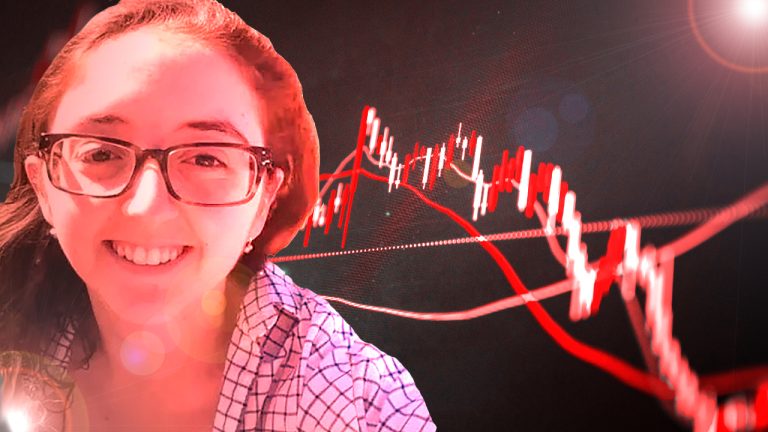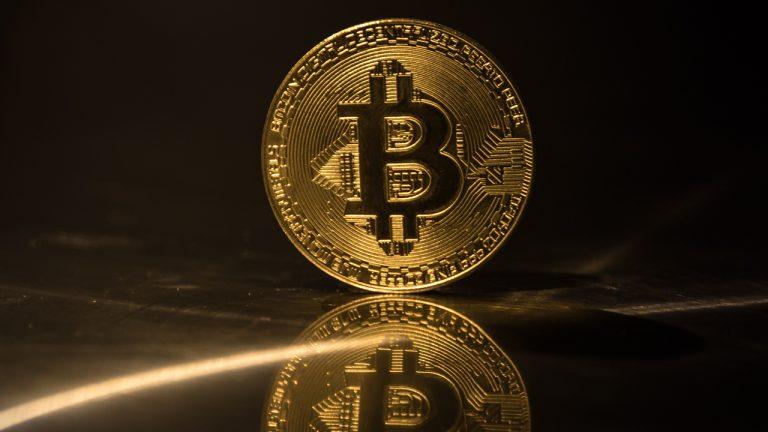
Document Claims Alameda CEO Caroline Ellison’s FTX Margin Position Was Negative $1.3B in May 2022

In a number of recent interviews, the former co-founder of FTX, Sam Bankman-Fried (SBF), explained that he “wasn’t running Alameda” and he “didn’t know the size of their position.” In a more recent discussion with The Block’s Frank Chaparro, SBF explained that auditors were looking at FTX’s corporate financials, but the auditors were “not looking at customer positions and not looking at customer risk.” This week, an FTX insider speaking to Bitcoin.com News under terms of anonymity shared a document that purportedly shows Alameda Research CEO Caroline Ellison’s personal account was in the hole by $1.31 billion in May 2022.
SBF Interviews Continue to Highlight a Massive Margin Position That Went Sour
There’s been a lot of information shared by the former FTX co-founder Sam Bankman-Fried (SBF) during his interviews, and it seems that somehow, without his knowledge, a large margin account got out of control. This has been blamed on “poorly-labeled accounting” practices and SBF said he “f***ed up.”
“In multiple ways, frankly. In terms of letting a margin position get too big, bigger than I thought it was. And not being thorough enough to catch that,” SBF told New York Magazine. The massive margin position, that took SBF off guard, has been referred to in many reports about FTX and during SBF interviews.
“We should not have allowed a margin position to get that big,” SBF stressed to New York Magazine reporter Jen Wieczner. “It was too big. And it was too big, given the liquidity of the collateral,” SBF added. In another statement, SBF detailed that Alameda’s margin position was so big that it “was not going to be closable in a liquid way in order to make good on its obligations.”
“That position, in retrospect, seems like it got substantially bigger in the middle of the year,” SBF added. The FTX co-founder continued:
That made it go from a somewhat risky position to a position that was way too big to be manageable during a liquidity crisis, and that it would be seriously endangering the ability to deliver customer funds.
During SBF’s most recent interview with The Block’s Frank Chaparro, the former FTX CEO said that regulators and auditors did not see any financial holes because customer positions, and Alameda Research’s positions, were not included in FTX’s financials. SBF said auditors looked at certain aspects, but they were “not looking at customer positions and not looking at customer risk.”
“This was effectively a customer negative position, and many customers had negative positions open on FTX,” SBF told Chaparro. “Those were not part of FTX’s assets or liabilities, they were customer assets and liabilities, and so FTX’s financials were not directly impacted by this.” Chaparro’s interview also talks about how top executives were “extended large personal lines of credit.”
FTX Insider Document Supposedly Shows Caroline Ellison’s Margin Position Was a $1.3 Billion Hole
This week a document was sent to Bitcoin.com News that allegedly shows Caroline Ellison’s balance on FTX seven months ago in May 2022. According to the source familiar with the matter, Ellison shared this data among a number of FTX staff members when she was experiencing a technical glitch with her personal trading account.
The document shows Ellison ostensibly had a negative balance at that time of around $1.31 billion in May 2022. All FTX accounts show negative balances, if the user has a negative balance for specific reasons such as that a payment wasn’t settled or the user was in debt from margin positions. The documentation that is allegedly tied to Ellison, shows an enormous balance that no ordinary user would have, including a negative quantity of FTX equity.
The document our newsdesk viewed indicates the user’s negative balance owed or held in a margin position, points to a massive amount of FTT, megaserum (MSRM), locked megaserum (MSRM), locked serum (SRM), locked maps (MAPS), solana (SOL), ethereum (ETH), bitcoin (BTC), and millions of dollars worth of stablecoins. The user’s balance, allegedly tied to Alameda CEO Ellison, shows nearly every account is in the negative to the tune of roughly $1.31 billion.
Chaparro notes around the 9:30 mark in his interview that Ellison mentioned that FTX extended quite a bit of credit to Alameda Research. “[Ellison] said that you knew, that Gary knew,” Chaparro pressed during his question, and he said people within both firms knew about these lines of credit. “I think she’s likely correct, that Alameda Research was effectively extended a substantial amount of credit by FTX and in the end, that margin position became under severe stress and it blew out.”
A negative $1.31 billion margin position, like the one disclosed to our newsdesk this week, is a very large hole. Margin positions refer to trades that are made using borrowed funds and usually, if the trader is unable to maintain the minimum required margin, the position is liquidated in order to repay the borrowed funds. The large margin position shared in May 2022, is around the same time frame the Terra LUNA fiasco happened.
The insider that shared the document purportedly tied to Ellison, asked “how can a buddy of SBF generate a debt” of that size “with no collateral?” There’s a lot of unanswered questions that circle back to Ellison and people have been investigating the Alameda CEO for quite some time. Ellison was reportedly spotted in New York this past weekend with the FTX office dog called ‘Gopher.’
What do you think about the document that supposedly shows Caroline Ellison had a negative $1.3 billion margin position in May 2022? Let us know what you think about this subject in the comments section below.
Go to Source
Author: Jamie Redman









